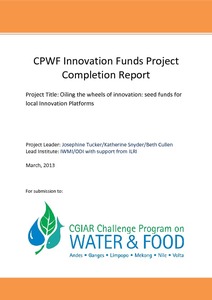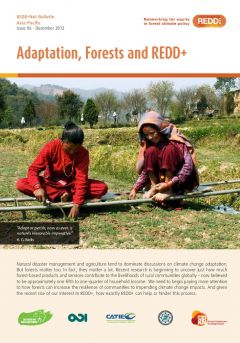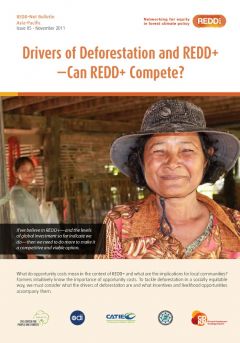The Overseas Development Institute (ODI) is the UK's leading independent think tank on international development and humanitarian issues.
Mission
Our mission is to inspire and inform policy and practice which lead to the reduction of poverty, the alleviation of suffering and the achievement of sustainable livelihoods in developing countries.
We do this by locking together high quality applied research, practical policy advice, and policy-focused dissemination and debate.
We work with partners in the public and private sectors, in both developing and developed countries.
Values
- Independence: ODI’s research, public affairs and policy advice are independent from its funders, and staff are able to challenge donor thinking and policy and the wider development consensus.
- High quality: Best practice, innovative approaches and continuous improvement are ensured in research, policy advice and public affairs.
- Fairness, diversity and equality: All staff and partners are treated fairly and with respect. ODI employment, disciplines and processes are appropriate for an institute focused on international development.
- Working together: There is continuous effort to foster better relationships throughout the organisation.
- Transparency and accountability: There is open reporting on the use of public funds, with full communication of our work to our donors, research subjects and partners.
- Sustainability: Resources are used in a sustainable way that reflects consciousness of the impact on the environment. The organisation works in a way that is sustainable, backed by commitment to its long-term viability.
Members:
Resources
Displaying 71 - 75 of 111Innovation platforms, power, representation and participation: Lessons from Blue Nile Basin, Ethiopia
Innovation Platforms, power and representation: Lessons from the Nile Basin Development Challenge
Oiling the wheels of innovation: Seed funds for local Innovation Platforms (CPWF innovation funds project completion report)
REDD-Net Asia-Pacific Bulletin #6: Adaptation, Forests and REDD+
Natural disaster management and agriculture tend to dominate discussions on climate change adaptation. But forests matter too. In fact, they matter a lot. Recent research is beginning to uncover just how much forest-based products and services contribute to the livelihoods of rural communities globally – now believed to be approximately one-fifth to one-quarter of household income. We need to begin paying more attention to how forests can increase the resilience of communities to impending climate change impacts.
REDD-Net Asia-Pacific Bulletin #5: Drivers of Deforestation and REDD+
What do opportunity costs mean in the context of REDD+ and what are the implications for local communities? Farmers intuitively know the importance of opportunity costs. To tackle deforestation in a socially equitable way, we must consider what the drivers of deforestation are and what incentives and livelihood opportunities accompany them.






